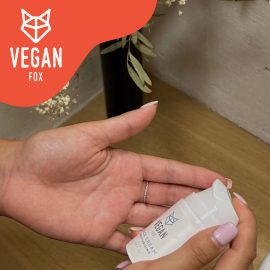Why is it important to know your skin type?
Can skin type change? Each skin type has its own unique characteristics and needs that can affect both the appearance and well-being of your skin. By understanding your skin type, you can make informed and well-informed decisions - ensuring your skin is cared for, protected and treated.
The most accurate way to determine your skin type is to see a beautician or dermatologist, and once that is done, you should stick to one type of skincare that works for you on a daily basis. And yet, skin type can change over the course of a lifetime. Why is it important to know? If you choose products that are not suitable for your skin type, not only will they not be effective enough, but they may also worsen your skin condition and create a breeding ground for new skin health problems.
4 factors that can cause changes in skin type
Our skin feels and looks its best around the age of 30. Later, around 35, 40 years of age, we are more likely to experience the first signs of ageing as our skin becomes drier. Later on, our sebaceous glands produce less sebum, so our skin ages and loses firmness. These 4 factors are the most common causes of skin type change:
1) Hormonal changes. Puberty, childbirth, breastfeeding, menopause - all these life events can cause temporary or permanent changes in the skin.
2) Climate. Weather, climate and the environment around us can have a significant impact on our skin type. In winter, skin is more likely to be dry, so it's a good idea to use a cream that's a bit more creamy and to think about extra care and protection. In high summer, on the other hand, the heat can make the skin oilier, so light but nourishing body oils or creams are recommended
3) Dietary habits. Sooner or later, what happens inside us will be reflected in our skin. This is why I often mention the principles of "double hydration" - including spending time outdoors, moving, drinking enough water, eating fruit and vegetables. Healthy eating habits can delay the signs of premature ageing. On the other hand, eating processed sugars, dairy products can interfere with the production of collagen in the skin.
4) Lifestyle. Other daily habits, including stress, smoking, can also make your skin look dull and oily.
Anyone can experience skin changes, major or minor - and throughout life. In some cases, it can be prevented, while in others, we can adapt and find the best solutions.
Skin type has changed. How to proceed?
If you notice changes in your skin, first consult a dermatologist or cosmetologist. A specialist will help you pinpoint the cause of the changes and tailor your skincare routine to your current skin health. Then, choose a cleanser and moisturiser suitable for your skin type.
If you have oily/combination skin, prefer a cleanser that is anti-inflammatory and regulates the sebaceous glands. Our cleansing foam has sage and birch leaf extracts, calendula extract and glycine. Contrary to appearances, it is also important to moisturise oily skin with a face cream that suits the skin type, otherwise the sebaceous glands will produce more oil and the skin will become even oilier.
If you have dry skin, choose a product that is gentle, natural and without artificial fragrances to soothe and rejuvenate your skin. The foam for dry skin is enriched with aloe vera extract, which helps maintain moisture balance, promotes circulation and firms the skin, lactic acid, which restores the skin's natural pH balance, and fruit sugar, which attracts moisture to the skin.
With love,
Maija Rieksta-Riekstiņa
Vegan Fox creator and manager

